Today we shall scrutinize activated abilities. Please take a look at these cards and at highlighted abilities.
None of those is an activated ability: Blind Obedience, Apex Hawks, Tooth and Nail, Hooded Hydra, Drake Haven, Quenchable Fire, Curse of the Cabal. I hope this isn’t a surprise for anyone. If it is, you need to go back and attend the class about ability types once again.
How can you recognize an activated ability? It’s simple: any activated ability has a colon it its text. The part in front of the colon is the cost. The part behind it is the effect.
The cost: the effect.
The cost may consist of mana, tapping or untapping permanents, sacrificing permanents, discarding cards, adding or removing counters, exiling permanents, unattaching permanents etc., the devs’ fantasy is limitless to a good cause, otherwise Magic wouldn’t be so breathtakingly diverse.
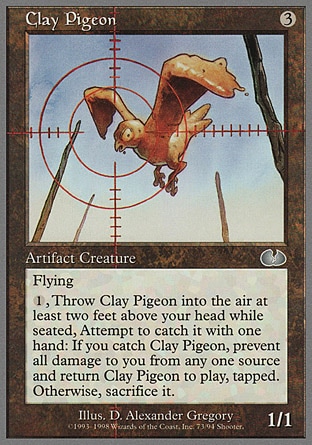
Even if you play or judge completely unserious tournament you find activated ability easily.
“{1}, Throw Clay Pigeon into the air at least two feet above your head while seated, Attempt to catch it with one hand”, — this is the cost.
The effect obviously reads like:
“If you catch Clay Pigeon, prevent all damage to you from any one source and return Clay Pigeon to play, tapped. Otherwise, sacrifice it.”
Activating abilities
Activated abilities are different from triggered and static ones in that they become (sounds incredible, I know!) activated. You may activate a non-mana activated ability any time you have priority. You may do so any number of times for any specific ability, as long as you can pay the cost and choose legal targets each time, and of course, provided that the ability text or the game rules do not state otherwise.
Some activated abilities have a limit for activation time and number of activations. For instance, you may only activated loyalty abilities in your main phase when the stack is empty and with the condition that that permanent’s abilities have not been activated this turn. In other words, loyalty abilities are played at “sorcery speed”.
Loyalty abilities are activated ones, but they have limitations on activating them.
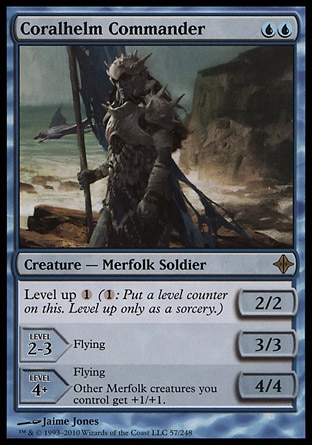
The abilities with a keyword Level up are activated. They may be activated only “at sorcery speed”.
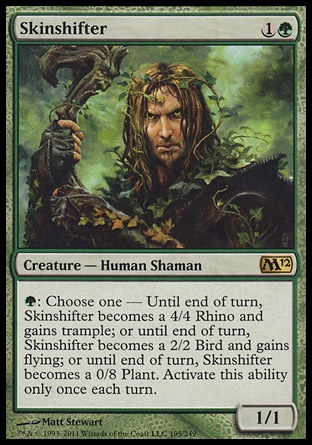
Skinshifter’s activated ability may be used once per turn.
602.3 To activate an ability is to put it onto the stack and pay its costs, so that it will eventually resolve and have its effect. Only an object’s controller (or its owner, if it doesn’t have a controller) can activate its activated ability unless the object specifically says otherwise.
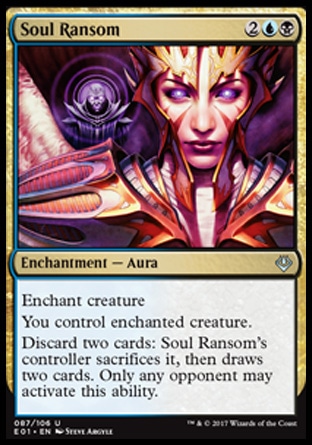
Only the opponent of Soul Ransom’s controller can activate its ability because the ability reads so.
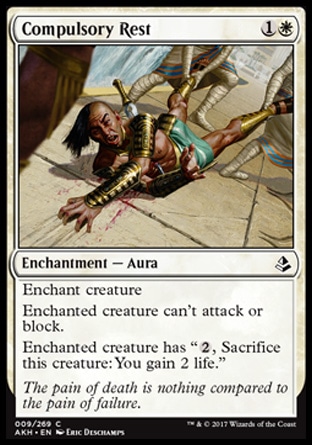
Compulsory Rest gives to enchanted creature an ability. Only creature’s controller may activate it (not the controller of the aura).
If an opponent steals an equipped creature from you, he cannot re-equip (activate the Equip ability) — you still control the equipment and namely you have the right to activate this permanent’s ability.
You may activate a mana ability any time you have priority or when you are required to make a mana payment. Mana abilities do not go onto the stack.
605.3. Activating an activated mana ability follows the rules for activating any other activated ability (see rule 602.2), with the following exceptions:
605.3a. A player may activate an activated mana ability
- whenever he or she has priority;
- whenever he or she is casting a spell or activating an ability that requires a mana payment; or
- whenever a rule or effect asks for a mana payment, even if it’s in the middle of casting or resolving a spell or activating or resolving an ability.
An activated mana ability doesn’t go on the stack, so it can’t be targeted, countered, or otherwise responded to. Rather, it resolves immediately after it is activated. (See rule 405.6c.)
You may activate a mana ability any time you have priority or when you are required to make a mana payment. Mana abilities do not go onto the stack.
602.2. …Activating an ability follows the steps listed below, in order. If, at any point during the activation of an ability, a player is unable to comply with any of those steps, the activation is illegal; the game returns to the moment before that ability started to be activated (see rule 717, “Handling Illegal Actions”). Announcements and payments can’t be altered after they’ve been made.
602.2a. The player announces that he or she is activating the ability. If an activated ability is being activated from a hidden zone, the card that has that ability is revealed. That ability is created on the stack as an object that’s not a card. It becomes the topmost object on the stack. It has the text of the ability that created it, and no other characteristics. Its controller is the player who activated the ability. The ability remains on the stack until it’s countered, it resolves, or an effect moves it elsewhere.
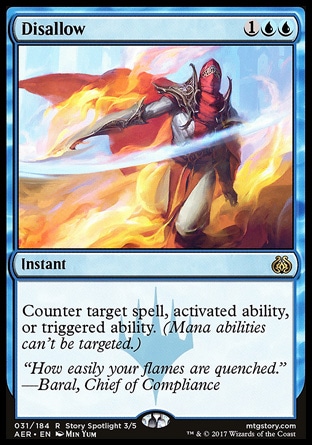
Activated ability can be countered by a spell or an ability. Than it leaves the stack.
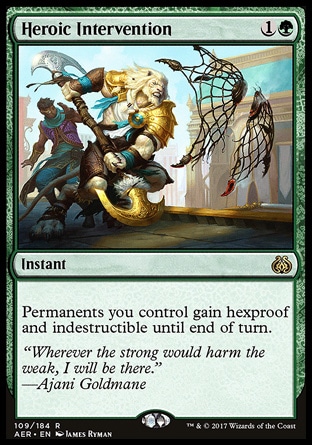
An ability is countered by rules if all its targets become illegal.
The forced end of turn makes the ability to leave the stack too.
602.2b. The remainder of the process for activating an ability is identical to the process for casting a spell listed in rules 601.2b-h. Those rules apply to activating an ability just as they apply to casting a spell. An activated ability’s analog to a spell’s mana cost (as referenced in rule 601.2e) is its activation cost.
It’s worth taking a break here and refresh our knowledge on the process of casting a spell, fitting it on activated abilities. Have in mind that:
- first, we move the ability on the stack by selecting the required parameters (announcing the value of X, or how the hybrid mana in the activation cost will be paid etc);
- then choose targets;
- then split effects among the chosen targets;
- determine the total cost of activation;
- finally, we pay it.
The following rules describe the process of activating abilities:
602.3. Some abilities specify that one of their controller’s opponents does something the controller would normally do while it’s being activated, such as choose a mode or choose targets. In these cases, the opponent does so when the ability’s controller normally would do so.
602.3a. If there is more than one opponent who could make such a choice, the ability’s controller decides which of those opponents will make the choice.
602.3b. If the ability instructs its controller and another player to do something at the same time as the ability is being activated, the ability’s controller goes first, then the other player. This is an exception to rule 101.4.
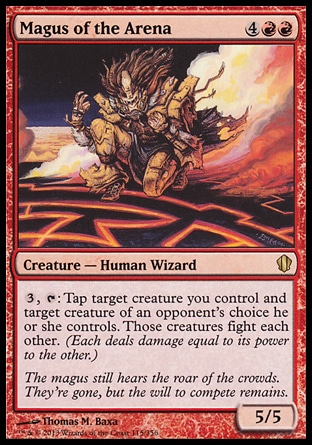
In 2HG game a player has two opponents. In that case the player chooses the opponent who will be makig a choice. When activating the ability of Magus of the Arena, one of the targets is chosen by the opponent, the other — by the controler. Normally, simultaneous actions are performed in the APNAP order, but in this case, the controller always makes the first choice, regardless of whose turn it is activated on. Read more about the keyword action Fight.
602.4. Activating an ability that alters costs won’t affect spells and abilities that are already on the stack.
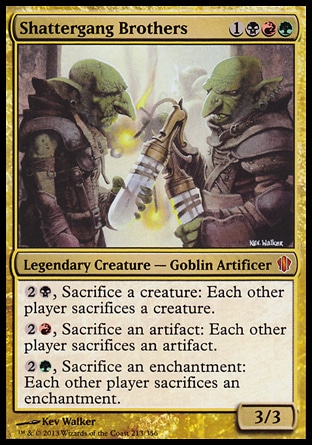
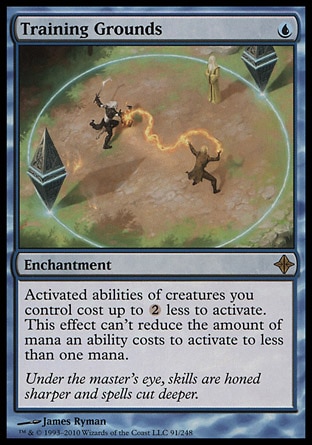
602.5b. If an activated ability has a restriction on its use (for example, “Activate this ability only once each turn”), the restriction continues to apply to that object even if its controller changes.
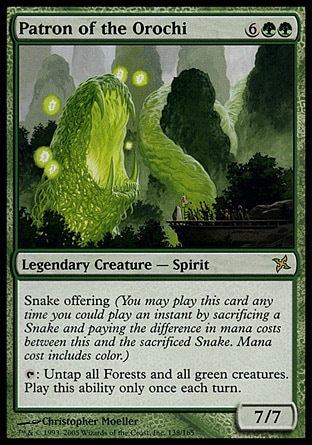
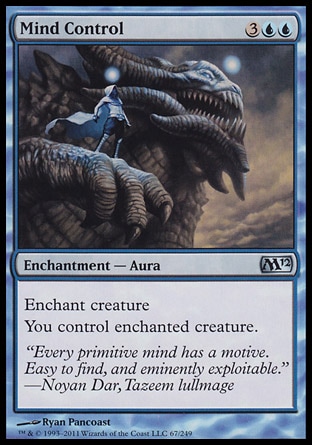
If a player activated ability of Patron of the Orochi, than his opponent take it under control, then the oppponent may not activate the ability of that Patron of the Orochi this turn.
602.5c. If an object acquires an activated ability with a restriction on its use from another object, that restriction applies only to that ability as acquired from that object. It doesn’t apply to other, identically worded abilities.

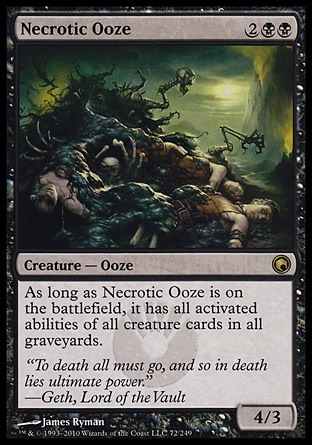
If there are two Skinshifters on the battlefield, Necrotic Ooze will have two different abilities with a limitation on each: each may be activated only once per turn.
602.5d. Activated abilities that read “Activate this ability only any time you could cast a sorcery” mean the player must follow the timing rules for casting a sorcery spell, though the ability isn’t actually a sorcery. The player doesn’t actually need to have a sorcery card that he or she could cast.
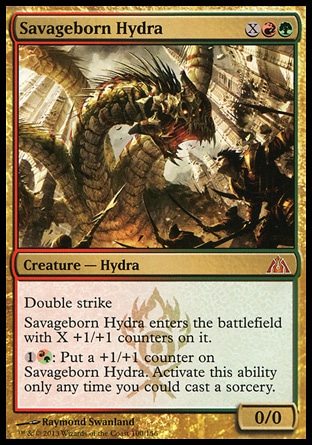
“The timing rules for casting a sorcery spell” means “in your main phase when you have priority and the stack is empty”.
Even if you can play Sorcery at instant speed thanks to Leyline of Anticipation, it doesn’t allow you to activate abilities with “Activate this ability only any time you could cast a sorcery” clause.
602.5e. Activated abilities that read “Activate this ability only any time you could cast an instant” mean the player must follow the timing rules for casting an instant spell, though the ability isn’t actually an instant. The player doesn’t actually need to have an instant card that he or she could cast.
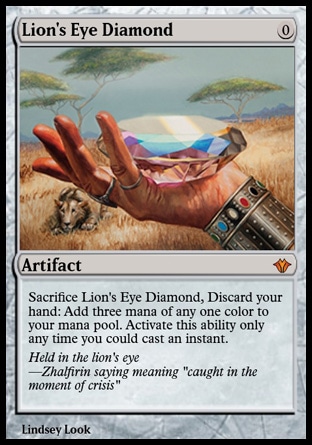
The ability of Lion’s Eye Diamond may not be activated when a spell is cast because nobody have priority at that time.
If we reach the point of resolving an activated ability, we get its effect, or as much of it as possible.
609.3. If an effect attempts to do something impossible, it does only as much as possible.
Example: If a player is holding only one card, an effect that reads “Discard two cards” causes him or her to discard only that card. If an effect moves cards out of the library (as opposed to drawing), it moves as many as possible.
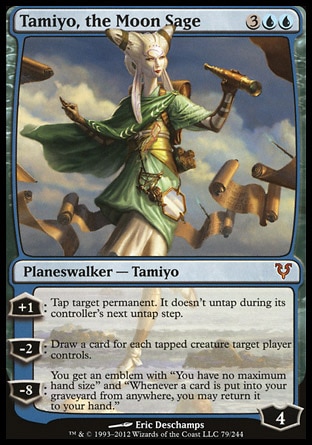
The first loyalty ability of Tamiyo the Moon Sage can targets a tapped permanent. The part of the effect, instructing to tap the permanent, will be ignored. The remain part of the effect will be applied.
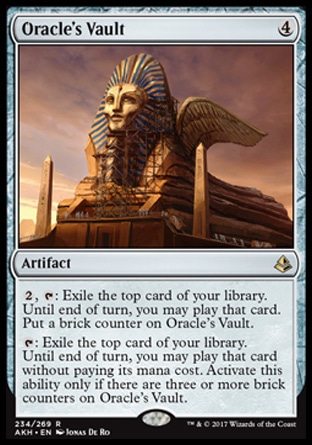
If a player exiles a land as any Oracles Vault’s ability resolves and the player has already played a land this turn (or it is an opponenp’s turn), then the player may not play the exiled card. This part of the effect will be ignored.
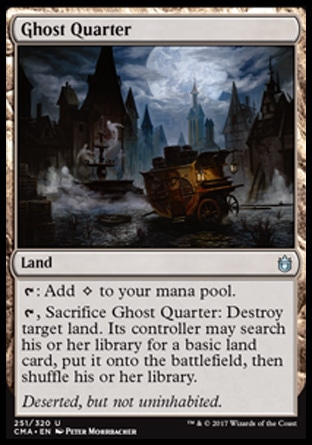
If you target an Indestructible land by the second Ghost Quarter’s ability, then the land wouldn’t be destroyed, but its controller may search a basic land card and put it onto the battlefield.
Upon this, let us finish our talk on activated abilities, and you may proceed to the
Homework
May Cursecatcher be sacrificed to activate the ability if the stack is empty?
It may not.
In this case we do not have any legal targets for Cursecatcher’s ability, so it may not be activated.
And sacrificing a permanent is possible only in two cases: if it is (part of) the cost of the ability, or if an effect instructs its controller to do so.
Can Saffi Eriksdotter be chosen as the target for her own ability?
Yes. Payment occurs after the target is announced, so Saffi may be chosen as the target. Unfortunately, by the time the ability resolves, the target will be checked again, and the ability will be countered due to no legal targets (Saffi will be in the graveyard by the time).
Lyzolda, the Blood Witch herself was sacrificed when activating her ability. Will the damage be dealt? Will the player draw a card?
Yep and yep. If nothing happens to the target, the ability will resolve and perform its effect, since after being fully activated it no longer depends on its source. Since Lyzolda is both a red and a black creature, both conditions are met.
After declaring Gomazoa a blocker, the player activated its ability and bounced it. What happens? What happens if the only blocked creature was bounced?
Gomazoa will be in the hand, and the blocked creature will go on its owner’s topdeck, then be shuffled into the library.
If the blocked creature is returned to the hand, the things described above will happen to Gomazoa.
Tapping Gomazoa is the activation cost, while the rest is the effect which is performed as much as possible. The ability doesn’t target, so even if one of the “subjects” is not on the battlefield, the rest will still meet their fate.
May the ability of Ant Queen be activated at the point when she is tapped after having attacked, and is there a limit (other than the amount of mana) on summoned insects?
It may. There are no limitations of this kind. The cost of activating the Queen’s ability is {1}{G} and nothing else, and as long as you can pay it you may keep activating this ability multiple times. The status (tapped) of the permanent doesn’t have any effect on activating this ability.
The player in control of Ajani Vengeant with 6 loyalty counters activates his first ability. In response, the opponent bounces the target permanent for Ajani’s ability. How many counters will Ajani have thereupon?
Seven. Adding or removing loyalty counters is the cost of activating loyalty abilities. Therefore, it doesn’t really matter what happens to the ability; the counter will be put on Ajani in the process of activating it.
The player controls Melira, Sylvok Outcast. He activates the second ability of Devoted Druid. What happens?
Player’s opponent calls a judge. Thanks to Melira, Sylvok Outcast counters -1/-1 may no be placed on permanents under thia player control. That means the player may not pay activation cost. Attempting to activate the ability is Game Play Error.
Where will Quest for Ancient Secrets end up after successfully activating its ability?
It depends on which player is chosen as the target. If it is the owner, then upon activating, the card will go to his graveyard, since sacrificing it is part of the activation cost. Upon resolution, it will be shuffled into his library.
If the opponent of the owner is chosen, the enchantment will remain in the owner’s graveyard.
Note that we talk about the owner here and not about the controller, since a sacrificed permanent goes to its owner’s graveyard, who may very well be not its controller as it is sacrificed.
When playing Goblin Bushwhacker, may the spell be kicked twice and “pump” the creatures by +2/+0?
No. Kicker is not an activated ability. This is a static ability that functions while the spell is on the stack and suggests a one-time payment. To players’ great delight, the R&D have invented Multikicker (Ref. rule 702.31c.) which allows paying kicker multiple times.
May Chandra Ablaze’s first ability be activated with no cards in hand?
Yup. The part about discarding the card is after the colon, so it is part of the effect, not the cost.
Can you activate the ability of Birthing Pod in your opponent’s turn if you control Leyline of Anticipation?
When you control Leyline of Anticipation you may cast sorcery spells at instant speed, no doubt. But this does not allow you to activate abilities with activation limit like “Activate this ability only any time you could cast a sorcery”. Such a limitation means you may activate this ability only during your turn when the stack is empty. It is in no way related to your ability to cast a sorcery spell at the moment. This is an activated ability after all, not a sorcery spell. More about Birthing Pod.
May Inkwell Leviathan be returned to the hand through Master Transmuter’s ability?
Yes. The Master’s ability isn’t targeted, so you may return the Leviathan (Shroud isn’t applied here).
May Master Transmuter be returned with its own ability and put onto the battlefield?
Yes. Returning an artifact to the hand is part of activating the ability. By the time it resolves, the Master will sit in your hand, so you may put it onto the battlefield.
A player in control of Elspeth, Knight-Errant with 4 loyalty counters activates her first ability. In response, the opponent activates Vampire Hexmage’s ability targeting Elspeth. What happens?
Elspeth’s loyalty ability becomes activated, a fifth counter is placed on her; the Vampire goes to the graveyard as his ability is activated; his ability resolves and all counters are removed from Elspeth; when SBA are performed Elspeth goes to the graveyard; her ability resolves and a 1/1 white Soldier creature token enters the battlefield.
What is the full cost of activating Corpse Harvester’s ability with a Drought on the battlefield?
The Oracle text of Drought is as follows:
“At the beginning of your upkeep, sacrifice Drought unless you pay {W}{W}.”
Spells cost an additional “Sacrifice a Swamp” to cast for each black mana symbol in their mana costs.
Activated abilities cost an additional “Sacrifice a Swamp” to activate for each black mana symbol in their activation costs.”
So, the full cost of activating Corpse Harvester’s ability is: {1}{B}, {TAP}, sacrifice a creature, sacrifice a swamp.
— Ping you! (activating the ability of Mogg Fanatic)
— In response, Unsummon the Fanatic.
— Judge!
I’m afraid, using Unsummon when the Fanatic’s ability has been announced is too late. Sacrificing is part of its activation cost, so by the time the opponent gets priority, the goblin is not on the battlefield. The target is not legal for Unsummon, the spell must be rewound, and the player must be instructed not to play this way. At an event with Competitive REL or higher, issue a Warning. Ref. Casting spells.
And a spooky story to finish with: “I had a Wall of Denial on the field, the opponent had a flipped Cunning Bandit with a ki counter. The opponent absent-mindedly moved the counter onto the wall and wanted to take it under his control, but then realized the wall had shroud. Can he move the counter, or is it lost “in the void”?”
Calm down, you don’t need either to move a counter nor to send something to the void. We have a case here of activating an ability with an illegal target. This case is solved as the one in the previous problem. By the way, the text of Cunning Bandit has not a word about “moving”. The activation cost only contains removing the counter from Cunning Bandit.
Translated by Witas Spasovski
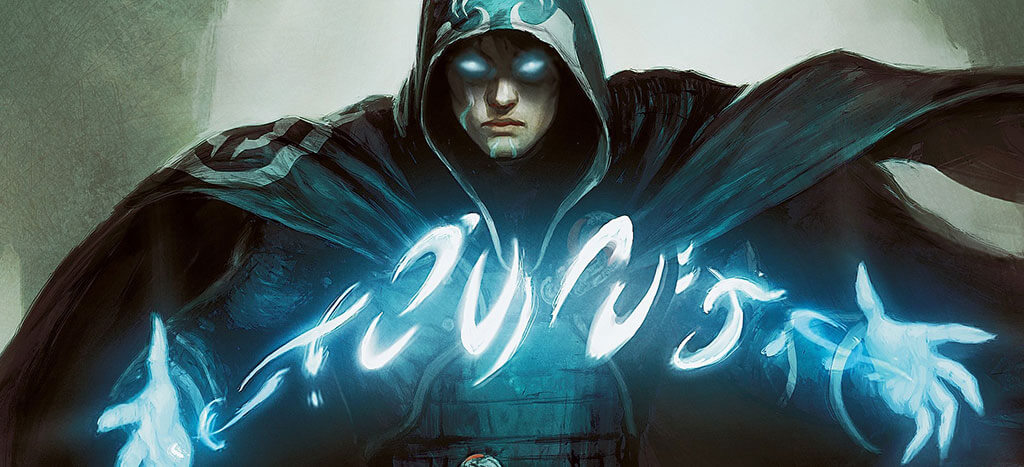
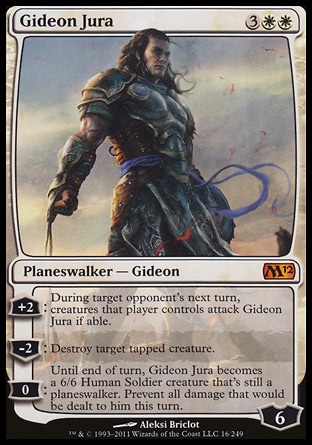
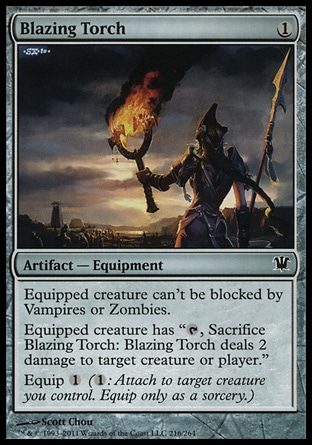
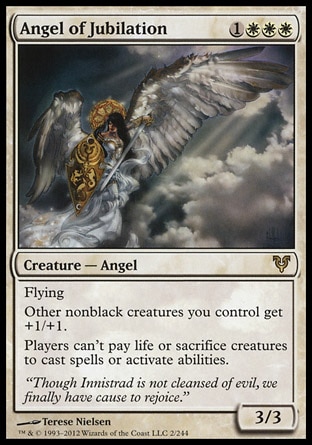
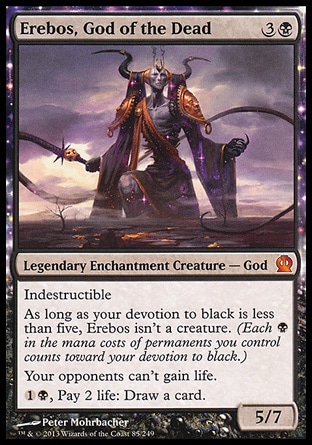
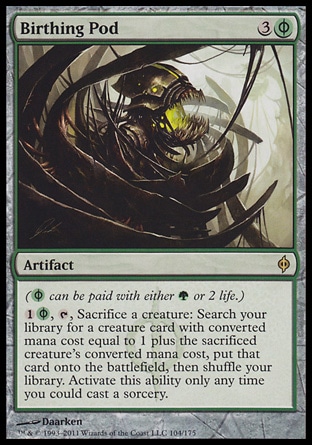

In presents of Angel of Jubilation players may not activate abilities that have a cost that requires a player to pay life or sacrifice a creature. Attempts to activate abilities of Erebos, God of the Dead or Birthing Pod fail on the payment step.